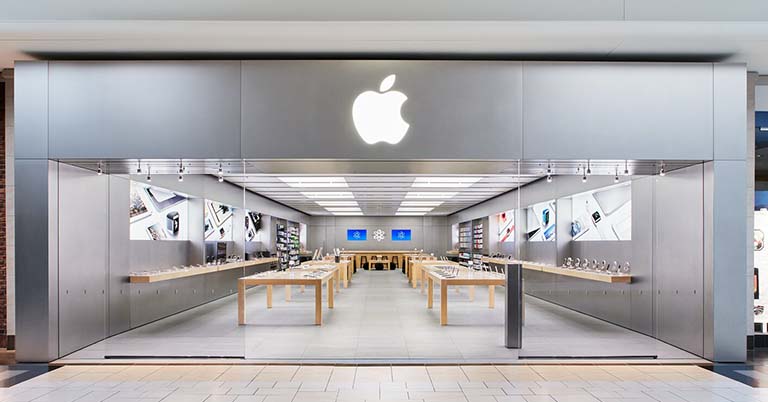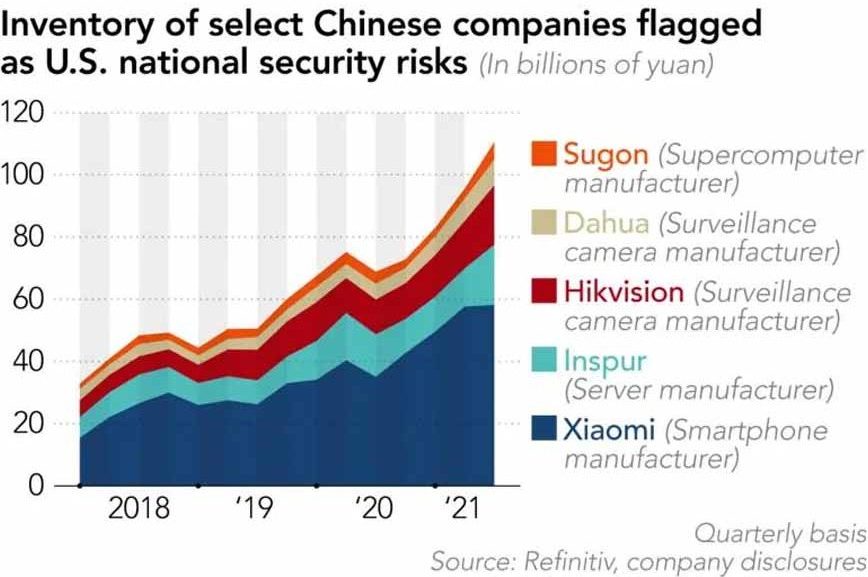
Apple, which first seemed immune to the global chip shortage because of the industry preference, is now facing the common consequences. As per the latest reports, the company is facing difficulties to meet its initial production goals.
Also, Apple has reportedly halted the production of iPhones and iPads at a time when it should’ve been ramping up production to meet the holiday season’s demand. Here, we will be digging deeper into the recent chip shortage woes of Apple.
Apple and chip shortage: Everything to know
Apple launched the iPhone 13 series earlier this year with an ambition to ship 90 million units in Q4 2021. However, in October, Bloomberg reported that the company had already reduced the goal by 10 million units, owing to chip shortage.
Apple even acknowledged the setbacks caused by the chip shortage and other complications due to COVID-19 in its financial report for the September quarter. The productions lines for iPads suffered even worse with reports from Nikkei Asia claiming the production had dipped by 50%.
What’s causing these disruptions?
Interestingly, it’s not the latest A15 Bionic chip or 5G components that Apple has problems with. Instead, it’s the components like transceivers, power management chips, and other sensors that are disrupting iPhone production.
These components are usually small and some are even as cheap as $1, but they are common across multiple consumer electronics.
-

Source: iFixit
Apple could not get enough camera sensors from Sharp because of the lockdown in Vietnam during October. Likewise, the COVID-19 emergencies in Malaysia affected the process of testing and packaging the chips. In addition, the recent energy crisis in China further worsened the situation.
Apple’s financial hits
So, Apple has suffered financially because of these delays. Estimates suggest that it’s cost the company about $3 to $4 billion in the April-June quarter. It then missed out on an additional $6 billion worth of revenue in the next quarter. In addition, Apple expects to take greater hits in the December quarter because of the same reasons.
- Also Read:
It’s not just Apple
Since the components in shortage are common across different industries, it’s not just Apple that is taking the heat. Even in the smartphone industry, Xiaomi expects a drop of 1 to 20 million units in its yearly shipment. Therefore, both of them will be missing out on huge Christmas and New Year sales.
In the console industry, Nintendo is reportedly making 20% fewer Switch devices because of the chip scarcity. Additionally, a lot of other companies including Acer, Wiwynn, and Advantech are failing to meet their respective demands as well.
Chinese stockpiling
One of the non-pandemic concerns contributing to the present condition is the political tension between US and China. The US government has been actively banning Chinese companies and cutting them off from the global supply chain. This has thus ignited fear among Chinese brands, which then started stockpiling components.
-

Source: Nikkei Asia
For instance, China-based Hua Hong Semiconductor’s inventory has increased by 292% since 2018. Similarly, SMIC (Semiconductor Manufacturing International Corporation) has also seen a 58% increase in its inventory in the same period. Other companies that are found to be stockpiling components include Sugon, Dahua, Hikvision, Inspur, and even Xiaomi.
Increased demand in the pandemic
While discussing chip shortage, it’s important to note that the demand for smartphones, PCs, and other electronic goods has significantly increased in the last year. The pandemic even took the struggling Android tablet market to new heights.
This increased demand for chips meant foundries were completely booked till the end of 2021. However, the resurgence of the automobile industry towards the end of 2020 added further complexities to the overall supply chain.
Chipmakers faced government-level pressure to prioritize the automobile industry. This has resulted in the shortage of chips and the subsequent price hike, which in some cases are up to a whopping 300%.
- Meanwhile, check out our review of iPad 2021 (9th gen)







![Best Gaming Laptops in Nepal Under Rs. 250,000 (रु 2.5 Lakhs) [2025] Best Gaming Laptops Under 2.5 lakhs in Nepal [Feb 2025 Update]](https://cdn.gadgetbytenepal.com/wp-content/uploads/2025/02/Best-Gaming-Laptops-Under-2.5-lakhs-in-Nepal-Feb-2025-Update.jpg)
![Best Gaming Laptops in Nepal Under Rs. 120,000 (रु 1.2 Lakhs) [2025] Best Budget Gaming Laptops Under Rs 120000 in Nepal 2025 Update](https://cdn.gadgetbytenepal.com/wp-content/uploads/2025/05/Best-Budget-Gaming-Laptops-Under-Rs-120000-in-Nepal-2024-Update.jpg)
![Best Laptops Under Rs. 80,000 in Nepal [2025] Best Laptops Under 80,000 in Nepal March 2025 Update](https://cdn.gadgetbytenepal.com/wp-content/uploads/2025/03/Best-Laptops-Under-80000-in-Nepal-March-2025-Update.jpg)
![Best Laptops Under Rs. 70,000 in Nepal [2025] Best Laptops Under 70,000 in Nepal March 2025 Update](https://cdn.gadgetbytenepal.com/wp-content/uploads/2025/01/Best-Laptops-Under-70000-in-Nepal-March-2025-Update.jpg)
![Best Gaming Laptops in Nepal Under Rs. 200,000 (रु 2 Lakhs) [2025] Best gaming lapotp under 2 lakhs Nepal Feb 2025](https://cdn.gadgetbytenepal.com/wp-content/uploads/2025/01/Best-Gaming-Laptops-Under-2-Lakh-Nepal-Feb-2025-Update.jpg)
![Best Mobile Phones Under Rs. 15,000 in Nepal [Updated 2025] Best Phones Under 15000 in Nepal 2024 Budget Smartphones Cheap Affordable](https://cdn.gadgetbytenepal.com/wp-content/uploads/2024/03/Best-Phones-Under-15000-in-Nepal-2024.jpg)
![Best Mobile Phones Under Rs. 20,000 in Nepal [Updated] Best Mobile Phones Under NPR 20000 in Nepal 2023 Updated Samsung Xiaomi Redmi POCO Realme Narzo Benco](https://cdn.gadgetbytenepal.com/wp-content/uploads/2024/01/Best-Phones-Under-20000-in-Nepal-2024.jpg)
![Best Mobile Phones Under Rs. 30,000 in Nepal [Updated 2025] Best Phones Under 30000 in Nepal](https://cdn.gadgetbytenepal.com/wp-content/uploads/2025/01/Best-Phones-Under-30000-in-Nepal.jpg)
![Best Mobile Phones Under Rs. 40,000 in Nepal [Updated 2025] Best Phones Under 40000 in Nepal 2024 Smartphones Mobile Midrange](https://cdn.gadgetbytenepal.com/wp-content/uploads/2024/02/Best-Phones-Under-40000-in-Nepal-2024.jpg)
![Best Mobile Phones Under Rs. 50,000 in Nepal [Updated 2025] Best Phones Under 50000 in Nepal](https://cdn.gadgetbytenepal.com/wp-content/uploads/2025/01/Best-Phones-Under-50000-in-Nepal.jpg)
![Best Flagship Smartphones To Buy In Nepal [Updated] Best flagship phone 2025](https://cdn.gadgetbytenepal.com/wp-content/uploads/2024/07/Best-Flagship-Phones-who-is-it-ft-1.jpg)